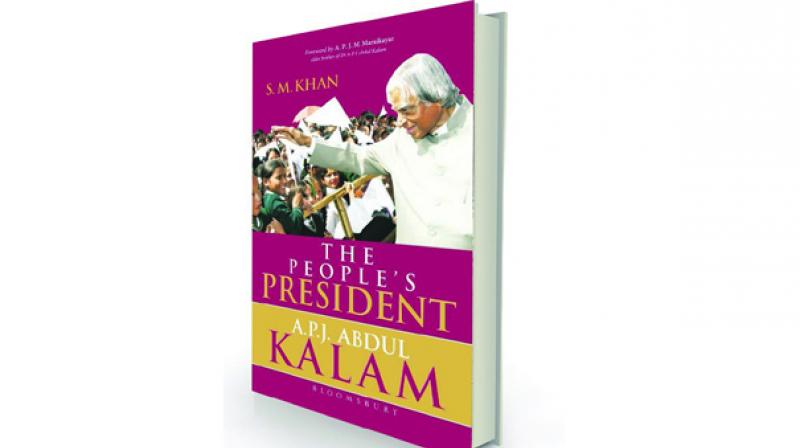Spotlight: The humane side of Abdul Kalam
Kalam abolished the practice of having a larger chair for the Rashtrapati on a dais during events.

India’s “Missile man”, Bharat Ratna, scientist, teacher and President of India… these are adjectives often associated with Dr A.P.J. Abdul Kalam — India’s 11th President. S.M. Khan, who was press secretary to Kalam, in his book, The People’s President has made an honest effort to acquaint us with the qualities that made up the great Dr Kalam. The preface itself sets the tone. Khan candidly describes how Kalam made it very clear to him that his intention was to “make Rashtrapati Bhavan a people’s place”, and until his last day of presidency, Kalam’s commitment towards this goal was indomitable. He asked every person who worked in Rashtrapati Bhavan to address him as “Dr Kalam” and not “His highness…” or “Mahamahim”, while he always referred to the author as “Khan Saab”. He abolished the practice of having a larger chair for the Rashtrapati on a dais when attending any function, he broke protocol and visited Amar Jawan Jyoti on Independence Day, and was the first to travel by the President’s train in decades.
The author also writes that Kalam used his office and post to spread the message of humanity, love, progress and positivity. For example Kalam, a workaholic, insisted on utilising one’s time to the hilt. He himself would never sit idle for a minute. Whenever he found some free time, he would play the Veena or write poetry. A visionary, Kalam also initiated e-governance at Rashtrapati Bhavan. Noteworthy is Kalam’s sensitive approach towards his first official visit outside New Delhi. Kalam chose Gujarat to meet the victims of 2001 earthquake and 2002 communal disturbances. He then went to Bhopal and met the victims of the gas tragedy. Divided into 13 chapters, the book gives a character sketch of Kalam. In the chapter titled, Man of courage, Khan recollects how Kalam was disappointed when the mission to launch Rohini into Earth’s orbit via the SLV3 failed, and how Kalam turned it around a few years later with the success of the Pokhran-II nuclear tests.
But the most interesting is chapter, People’s President which aptly justifies the title of the book. It shows how Kalam redefined President in unique ways. “His instant connect with children, impeccable integrity, simplicity and humanity made him an icon for a generation that was looking for home-made heroes. His stature as the Missile Man of India and a space scientist added to his charm in the eyes of youngsters who loved him and admired him beyond comprehension,” Khan says. Khan tries to show how Kalam was different and his humility was infectious. During a visit to Bihar, he met a 10-year old schoolgirl and the next day saw a picture of another girl in tears as she was unable to meet the President. Kalam asked his officials to find her address and send her a signed card with a letter of greetings. Khan explains that apart from his vast knowledge, it was Kalam’s ability to connect with the youth that made him popular. Kalam gave easy-to-understand messages and encouraged them to indulge in politics of development.
This book also discusses the various controversies surrounding Kalam and gives a balanced account of the same. For Khan, these were non-issues and soon died their natural death. Be it the decision not to be in the fray for the post for the second term or to be it returning the Office of Profit Bill (2006) for reconsideration before finally accepting it, Kalam was clear about his role, and that he did not want to create any problems for the government of the day. Kalam never once misused his office. When his elder brother went for Haj pilgrimage, the ambassador to Saudi Arabia offered his help and he promptly refused. One of the members of his extended family took up a rented apartment in Munirka, rather than staying at the Rashtrapati Bhavan. In fact, Kalam donated all his savings — Rs 25 lakh — towards a cochlear implant programme. Once a student from Jammu and Kashmir asked Kalam: “Would you like to be remembered in history as a great scientist, as the President of India or as a great teacher?” President Kalam replied: “I want to be remembered as a good human being.” Through priceless anecdotes and facts and incidents Khan was privy to, The People’s President is a prism through which one can see various facets of President A.P.J. Abdul Kalam. It’s extremely motivating. Read it!

